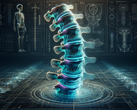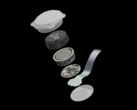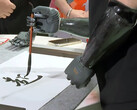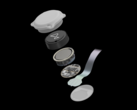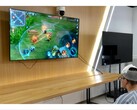Shanghai-based Ladder Medical, working with Fudan University’s Huashan Hospital, has conducted the country’s first clinical test of a long-term invasive brain-computer interface (BCI). The study enabled an amputee to steer a racing game using neural activity alone and establishes a domestic platform for future neuro-prosthetic research.
Researchers tackled two key challenges: unstable signals and high surgical risk. Ultra-flexible micro-electrodes, each roughly one-hundredth the diameter of a human hair, are integrated into cortical tissue with minimal immune response, maintaining clear neural recordings over time. Surgeons replaced the traditional craniotomy with a 3–5 mm skull puncture, sharply reducing trauma and recovery time. Three weeks after implantation, the participant achieved cursor control comparable to a conventional touchpad.
Clinical applications extend beyond basic interface trials. In patients with spinal cord injuries or limb loss, intact motor-cortex signals can be decoded to operate external devices such as exoskeletons or robotic arms, restoring key movements and improving independence.
BCI research also targets communication and neuromodulation. Decoding speech-related cortical activity could offer “mind typing” for the estimated 50 million people worldwide who live with aphasia, including late-stage ALS patients. Precise electrical stimulation, meanwhile, may suppress aberrant neural patterns involved in Parkinson’s disease, depression, or epilepsy, potentially outperforming drug-based therapies.
Signal processing remains the central technical challenge. Implanted arrays capture single-neuron firing patterns; machine-learning algorithms translate those patterns into digital commands; external hardware executes the resulting instructions. As algorithms advance, researchers anticipate richer bidirectional links that could enhance memory, control smart environments, or blend with artificial intelligence for seamless human-machine collaboration.
Source(s)
myDrivers (in Chinese)








